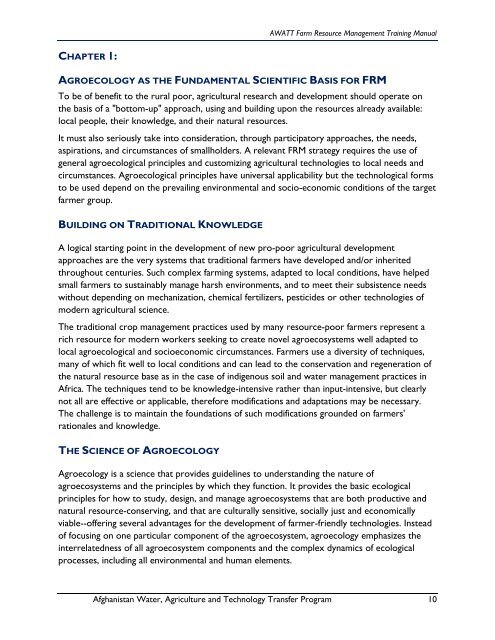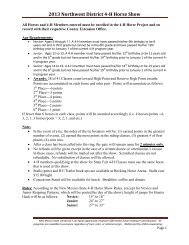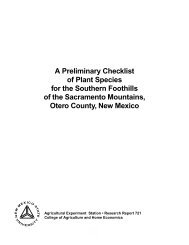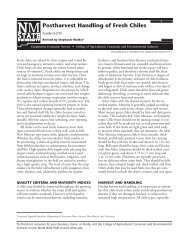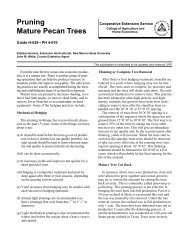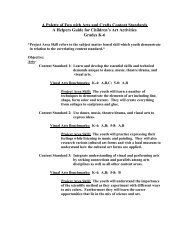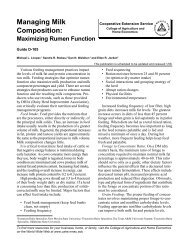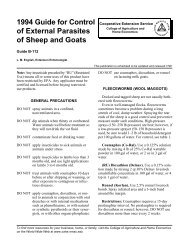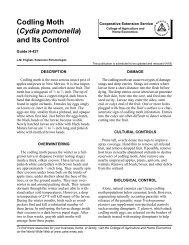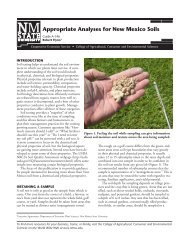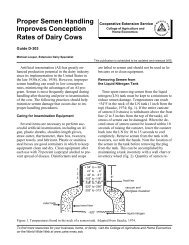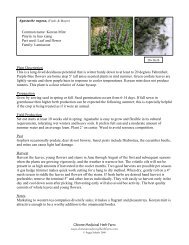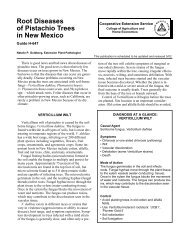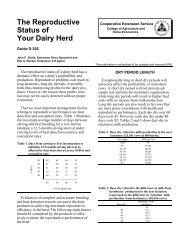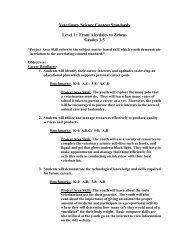Farm Resource Management (FRM) - College of Agricultural ...
Farm Resource Management (FRM) - College of Agricultural ...
Farm Resource Management (FRM) - College of Agricultural ...
Create successful ePaper yourself
Turn your PDF publications into a flip-book with our unique Google optimized e-Paper software.
AWATT <strong>Farm</strong> <strong>Resource</strong> <strong>Management</strong> Training ManualCHAPTER 1:AGROECOLOGY AS THE FUNDAMENTAL SCIENTIFIC BASIS FOR <strong>FRM</strong>To be <strong>of</strong> benefit to the rural poor, agricultural research and development should operate onthe basis <strong>of</strong> a "bottom-up" approach, using and building upon the resources already available:local people, their knowledge, and their natural resources.It must also seriously take into consideration, through participatory approaches, the needs,aspirations, and circumstances <strong>of</strong> smallholders. A relevant <strong>FRM</strong> strategy requires the use <strong>of</strong>general agroecological principles and customizing agricultural technologies to local needs andcircumstances. Agroecological principles have universal applicability but the technological formsto be used depend on the prevailing environmental and socio-economic conditions <strong>of</strong> the targetfarmer group.BUILDING ON TRADITIONAL KNOWLEDGEA logical starting point in the development <strong>of</strong> new pro-poor agricultural developmentapproaches are the very systems that traditional farmers have developed and/or inheritedthroughout centuries. Such complex farming systems, adapted to local conditions, have helpedsmall farmers to sustainably manage harsh environments, and to meet their subsistence needswithout depending on mechanization, chemical fertilizers, pesticides or other technologies <strong>of</strong>modern agricultural science.The traditional crop management practices used by many resource-poor farmers represent arich resource for modern workers seeking to create novel agroecosystems well adapted tolocal agroecological and socioeconomic circumstances. <strong>Farm</strong>ers use a diversity <strong>of</strong> techniques,many <strong>of</strong> which fit well to local conditions and can lead to the conservation and regeneration <strong>of</strong>the natural resource base as in the case <strong>of</strong> indigenous soil and water management practices inAfrica. The techniques tend to be knowledge-intensive rather than input-intensive, but clearlynot all are effective or applicable, therefore modifications and adaptations may be necessary.The challenge is to maintain the foundations <strong>of</strong> such modifications grounded on farmers'rationales and knowledge.THE SCIENCE OF AGROECOLOGYAgroecology is a science that provides guidelines to understanding the nature <strong>of</strong>agroecosystems and the principles by which they function. It provides the basic ecologicalprinciples for how to study, design, and manage agroecosystems that are both productive andnatural resource-conserving, and that are culturally sensitive, socially just and economicallyviable--<strong>of</strong>fering several advantages for the development <strong>of</strong> farmer-friendly technologies. Instead<strong>of</strong> focusing on one particular component <strong>of</strong> the agroecosystem, agroecology emphasizes theinterrelatedness <strong>of</strong> all agroecosystem components and the complex dynamics <strong>of</strong> ecologicalprocesses, including all environmental and human elements.Afghanistan Water, Agriculture and Technology Transfer Program 10


